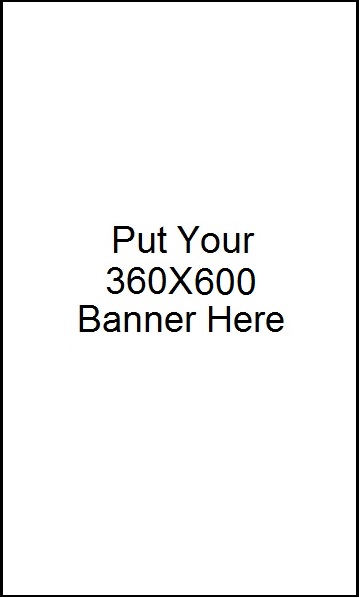 |
| What Are the Different Types of Financial Instruments? |
The financial markets trade a wide range of financial instruments. This is why it is critical for beginners who wish to begin trading or investing to understand the different types of financial instruments. Before they can even consider trading, financial traders and investors must first gain a thorough understanding of the product.
We'll go over the most essential forms of financial instruments, such as primary, derivatives, and combinations, as well as their characteristics, in this post. You'll also learn about the benefits and drawbacks of each option. You will have a better understanding of how to select the appropriate financial instrument for various reasons after reading this book.
What is the definition of a financial instrument?
A financial instrument, according to International Accounting Standards (IAS), is a contract that results in one entity having a financial asset and another firm having a financial liability or equity instrument.
To put it another way, a financial instrument is any asset that may be bought and sold by an investor. Financial instruments are contracts that we value and subsequently trade, such as securities. Financial instruments include options contracts, futures, and bills.
Financial Instruments Examples
Here are a few examples that summarise the concept of a financial instrument.
1st example
Consider putting some money into a savings account. A bank owes you the responsibility of keeping your assets safe and returning them when the contract expires. A popular sort of financial instrument is cash deposits.
Company 2 as an example Corporate bonds were issued by A. Some of the bonds were purchased by an investor. During the bond's maturity period, the investor will receive fixed payments. Bonds are financial instruments used by a firm to raise funds.
Financial Instruments Types
Primary (or cash) financial instruments and derivative financial instruments are the two main forms of financial instruments.
Instruments of the First Order
It's a cash instrument whose price is set entirely by market forces.
Deposits in cash
Cash deposits are sums of money paid into savings or bank accounts. When it comes to cash deposits, you have an agreement with the bank to return your money on a specific date. As a result, the bank is left with a liability. Cash deposits, on the other hand, are for savers rather than investors.
Bonds
Government bonds, corporate bonds, Eurobonds, and municipal bonds are the four types. You are lending money to a government agency or a corporation when you purchase government or corporate bonds. Eurobonds are priced in a currency other than the local currency of the nation in which they are issued. Municipal bonds, on the other hand, are debt certificates issued by states, cities, and other local governments to raise revenue. The interest you earn on your loan is how you get your money back.
Instruments of the Stock Market
Stocks or shares are the most common terms for them. When you acquire shares, you are essentially purchasing a piece of a company and becoming a co-owner or shareholder. You will receive two types of returns. The first is any gain in the share price, which increases the value of your investment. Second, you can receive dividends, which are your portion of the company's profits.
Derivatives
A derivative instrument's price is determined by another underlying asset or variable, not by the derivative contract itself.
Forwards
It's a tailored agreement between two parties to buy or sell an item at a specific price on a specific date in the future. Because forwards are not traded on a central exchange, they are not standardised to restrictions, which makes them ideal for hedging.
Futures
Futures contracts are very similar to forward contracts. They are, however, standardised and controlled, which is why they may be sold on an exchange, unlike forwards. Commodity futures are frequently utilised to speculate.
Options
An options contract is a contract in which the buyer or seller has the right but not the obligation to buy or sell a financial asset at a fixed price for a set period of time.
Swaps
It refers to the exchange of one security for another based on a variety of conditions for a specified period of time. The legs of the swap are the cash flow streams that make up the exchange. The swap agreement stipulates when and how the cash flows will be paid.
Asset Classes and Financial Instruments
The typology of financial instruments is influenced by the asset class. As a result, debt and equity-based instruments are possible.
Debt-based financial instruments
They assist various institutions and businesses in raising funds. These instruments can be used for both short and extended periods of time. Debt-based short-term instruments typically last up to a year. These instruments include T-bills and commercial paper. The maturity length of long-term debt-based financial instruments is greater than a year. Bonds and debentures are examples.
Equity-based financial instruments
In the long run, such instruments are more beneficial to firms than debt-based financial instruments in terms of capital growth. The debt is not paid by the owner in this scenario because they are not responsible. Typical equity-based financial instruments include stocks, equity futures, and transferrable subscription rights.
Financial Instrument Characteristics
They are the most important factors in deciding which business to choose.
Liquidity
This is a metric for how easily an item can be traded; it basically indicates how soon you can get money out of it. The faster you can turn your investments into cash, the more liquid they are. As a result, cash and stocks are typically the most liquid assets. Because real estate is more difficult to sell, it is less liquid.
There is no set formula for calculating liquidity. You can, however, employ two common measures: current ratio and quick ratio. High values for both measures imply high liquidity and overall financial health.
Expected Profit
It is a return's expected value; nevertheless, it is not based on your beliefs. It can be roughly predicted by looking at the asset's average price and the market's history, but there are no certainties. It's simply the average of what has occurred throughout history.
Risk
Why is it important to understand the many types of financial instruments?
- Forex
- Cryptocurrencies
- Metals of great value
- Stocks \sBonds
- Mutual funds are a type of investment that allows you
- Deposits on real estate
Financial Instruments' Advantages and Disadvantages
Before you trade or invest, you should weigh the risks and rewards of any financial instrument you're considering:
 |
| Financial Instruments' Advantages and Disadvantages |
How to Select the Most Appropriate Financial Instrument
Financial instruments are available in a wide range of sizes and designs. Here are a few things to keep in mind when selecting the best ones.
Determine why you require this financial instrument in the first place.
Financial tools can assist you in achieving your financial objectives, but first you must identify them. These could be short-term objectives, such as raising funds to purchase a new computer, or long-term objectives, such as saving for an early retirement.
Step 2: Evaluate Your Risk-Taking Attitude
Risk can influence everyone of us in different ways. It is determined by various psychological factors such as risk tolerance and anxiety. For people who are wary of risk, low-risk government bonds with lower pay-outs are a preferable option.
Step 3: Consider the Characteristics of Each Financial Instrument
Every financial instrument has benefits and drawbacks. Before making a decision, consider all factors related to your goal, level of risk, length of time, and so forth. To put it another way, you should learn how to use such instruments.
Trading's Best Financial Instruments
Trading can bring you money in as little as a few hours, days, weeks, or even months. It is, however, significantly riskier because your price bet either works out or doesn't in that time frame. The following is a list of trading financial instruments:
Foreign exchange (forex) (Currencies)
Many investors and traders are unaware that the foreign currency, or Forex, market is the world's largest. You can buy and sell a variety of currency pairings, but for short-term plans, it's best to concentrate on just a handful to learn as much as possible.
Stockpiles (CFD)
When you buy a regular individual stock, you become a shareholder; but, when you buy a stock CFD, you do not own a piece of the company. Instead, you purchase a contract that allows you to monitor the performance of an underlying stock. On Forex, a stock CFD is exchanged similarly to a currency.
Commodities are a type of asset (CFD)
Buying and selling commodities CFDs, like stock CFDs, does not imply that you own metals or oil. You purchase a contract that tracks the price of the asset on which it is based. You can benefit from both purchasing and selling a commodity.
Indices of the Stock Market (CFD)
They're a wonderful way to avoid buying individual stocks. Speculators can profit from changes in the price of a group of equities using index CFDs. The most popular indices are the S&P 500 and the DJIA.
Don't be concerned if you have no idea how to begin trading these instruments. SONY Net Business can assist you in trading to profit from price fluctuations.
Investing's Best Financial Instruments
Lengthy-term investing entails holding your investments for a long period of time. You won't have to worry about your portfolio's worth fluctuating from day to day in this instance. Here's a rundown of financial instruments to consider:
ETFs
An ETF is essentially a portfolio of different investments, which could include bonds, equities, or commodities. It trades on the stock exchange like a single stock. ETFs can also track a specific stock industry, such as the technology or banking industries. Investing in ETFs is a very cost-effective approach to diversify your portfolio, and it is far safer than buying individual equities.
Stocks with a high market capitalization
Investing in large-cap firms is advised for novices. These are businesses with a market valuation of more than $10 billion. Because they have a demonstrated track record of increasing earnings, large-cap corporations are considered to be safer than smaller, more risky companies.
Index funds are a type of mutual fund that invests in
An index fund is a sort of pooled investment that you can purchase through your brokerage account. They're ideal for investors who want to buy and hold without having to pay high management costs. Index funds allow you to grow your money without actively managing it. If you're new to investing, starting with just one of these funds as one of your core assets is a wonderful way to get started.
Bonds
Government bonds are considered to be one of the safest asset classes, making them ideal for long-term investments. These bonds are used by governments to fund projects and infrastructure. In exchange, they pay a predetermined rate of interest at intervals determined by the bond coupon. So when bond is issued, you get refunded your initial investment. Corporate bonds are another option. However, be cautious when selecting a company. Keep an eye on the ratings.
Debt Management Funds
Many organisations take out loans to help them meet their financial obligations. The central government, banks, infrastructure finance corporations, and many others are among them. Any collection of fixed-income investments is referred to as a debt fund. Choose organisations and institutions with significant income, cash flows, and profits, since they will be able to easily service their debt commitments. Credit rating firms have given them the highest possible rating.
Conclusion
Trading and investing need the use of financial tools. As a result, it is critical for newcomers to understand what they are and how they operate in the marketplace. For rookie investors, there are a variety of instruments to choose from, each of which can be employed in a different way. The most important thing is to pick the correct plan to assist you achieve your long or short-term objectives. However, it is only achievable after selecting the appropriate Forex broker. SONY Net Business is the solution for you.














.png)
.png)